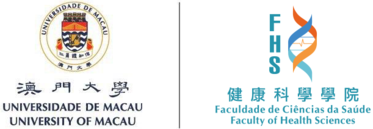聯絡信息

職稱
高級導師, 基因組學、生物信息學及單細胞分析核心實驗中心營運經理
辦公室
(地址) E12-4026
/ (電話) +853 8822 4987
團隊辦公室
(地址) E12-3019
/ (電話) +853 8822 4131
諮詢時間
星期二、四 11:00 – 12:00
教學
| Education | |
| PhD | Department of Genetics, University of Melbourne, Australia (2003 – 2008) |
| BSc (1st Class Hons) |
Department of Biochemistry and Molecular Biology, University of Melbourne, Australia (2002) |
| BSc | Faculty of Science, University of Melbourne, Australia. Majors in Genetics, Biochemistry and Molecular Biology (2001) |
| Diploma | Biotechnology, Ngee Ann Polytechnic, Singapore (1997 – 2000) |
| Positions | |
| 2013 – Present | Senior Instructor, Faculty of Health Sciences, University of Macau |
| 2008 – 2013 | Postdoctoral Research Fellow, Department of Cell Biology, Harvard Medical School, USA |
| Research Interests |
| Many fungi are opportunistic pathogens that infect immune-compromised individuals like patients with immune diseases (e.g. HIV) and patients whose immune system is suppressed by drugs during bone marrow or organ transplant therapies and cancer treatments. As the number of these patients increases, fungal pathogens pose increasing threats to human health.Treatment of fungal diseases has always been a major clinical challenge. Fungi and humans are both eukaryotic organisms and share many conserved molecular mechanisms. As such, drugs that can kill fungi often inevitably also have adverse effect(s) on the human hosts. Furthermore, fungal pathogens may develop resistance to existing anti-fungal drugs. These factors lead to an unacceptably high mortality rate for fungal infections despite the advances of modern medicine. Therefore, there is an urgent need for development of new effective anti-fungal therapeutics.The ability of any pathogen to cause disease relies on its ability to adapt to and grow within the host environment. The proper and timely delivery of organelles and biological molecules to specific destinations within a cell is essential for cell growth and survival, and hence cellular transportation must play an important role during fungal pathogenesis. Cellular transportation has been a subject of intensive research, but many big questions still remain in the field. For example, how the transportation process is regulated and coordinated and how it contributes to fungal pathogenesis are not yet understood.My research uses a multi-disciplinary approach to study how molecules are transported within a cell and study the role of cellular transportation during fungal infection. This will provide important clues in identifying novel anti-fungal targets and development of effective therapies for fungal infections. |
| Representative Publications |
|
| Full publications list |
| Awards | |
| 2003 – 2006 | International Postgraduate Research Scholarship (IPRS) The Australian Government |
| 2003 – 2006 | Melbourne International Research Scholarships (MIRS) The University of Melbourne, Australia |
| 2005 | Melbourne Abroad Postgraduate Traveling Scholarships The University of Melbourne, Australia |
| 2002 | Dean’s Honour List – B.Sc.(Hons) Level The Faculty of Science, The University of Melbourne, Australia *Excellence in academic achievement |
| 2002 | Melbourne Undergraduate Coursework Scholarship The University of Melbourne, Australia |
| 2001 | Melbourne International Scholarship The University of Melbourne, Australia |
| 2000 | Silver medalist of Singapore Society for Biochemistry and Molecular Biology Ngee Ann Polytechnic, Singapore |
| Professional Activities |
| Member of The Genetics Society of America |
| Others |
Conference Presentations
|

